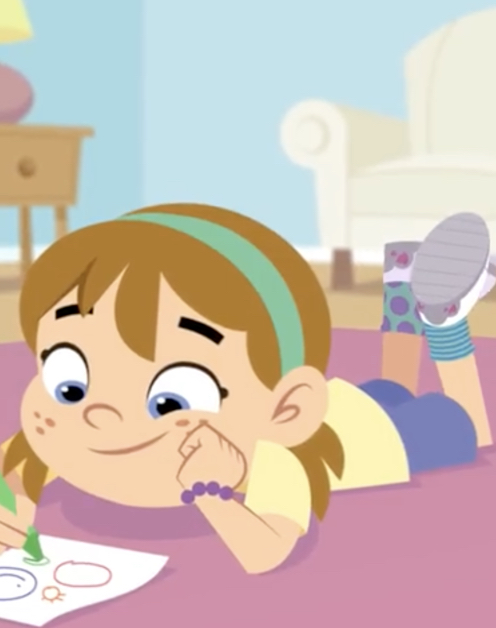SCHOOL FOCUS GROUPS (ALBERT LEA, MN)
BACKGROUND
On June 1, 2016, informal focus groups were conducted at Sibley Elementary School in Albert Lea, Minnesota, to test and gather feedback on the Barbara Sinatra Children’s Center Foundation videos. Four classes of children participated: 2 first grade classes and two fourth grade classes. Each grade was shown the videos appropriate for their respective grade level, and following the viewing session, the classes were asked a series of questions in an open forum format to get their feedback on the videos and subject matter.
Across both groups, the children seem to have found the videos engaging and informative. Even though the children were shown multiple videos at once (approximately 15-20 minutes of viewing time), they held their attention.
FIRST GRADE FOCUS GROUP
Prior to the groups starting, the teacher (Ms. Jones) said that throughout the year, she has been talking to her class about abuse and what the children should do. This preparation and understanding was reflected in the class’s answers.
When asked if they could share what the videos were about, most of the class gave answers indicating that they understood the preventive actions they should take:
“I would tell them it’s about what you do to keep your body safe.”
“Tell your parents.”
“Shout, run and tell!”
“Even if your cousins or friends do that, you should still run and tell.”
The children also conveyed they understood the importance of the topics presented:
“You never want them to happen.”
The subject matter and scenarios presented in the video did not seem to frighten or alarm the children. When asked how they felt after watching the videos, most kids answered “happy,” or “safe.” Also, they did not have questions about the vocabulary used or the scenarios shown.
Universally, the children reacted positively to Lenny and Sara, and to Miss Barbara. They said they could see themselves playing with or being friends with Lenny and Sara.
When asked, most children indicated that they had a trusted adult they could turn to, either a parent or teacher. Some children answered “the police.”
FOURTH GRADE FOCUS GROUP
At first, when the class was asked if someone had talked to them about the topics presented, the class answered “no” almost unanimously. But as the discussion went on, most of the children later expressed that their parents or grandparents had talked to them about these topics.
The kids thought the video was important, and understood the key themes:
“You’ll know what to do if someone abuses you.”
“It’s important because some kids who are being abused don’t know what to do”
When asked about their feelings after watching the video, about half the class said they felt “safe,” and now they know what to do.
However, some children answered that the video made them feel “scared,” “scared and protected,” and “more scared than protected.” This could probably be mitigated with more guided classroom discussion when the videos are formally released. After the focus groups were over, the teacher (Ms. Jensen) had a short talk with the class about where to turn and who to talk to if they needed help.
The children understood the themes and terms used in the video, and there were no questions about the vocabulary used or the scenarios presented.
All of the children said that they found the characters in the video relatable and memorable. Many kids said they could see themselves being friends with Maya and Darius, and viewed Miss Barbara as a counselor or trusted adult.
When asked if they had any questions, the fourth grade class had insightful and serious questions:
“Why would they do it in the first place?”
“What would you do if someone abuses you, and there’s no one around?”
Finally, when asked for closing comments, the children gave positive comments and said that the video should be shared:
“I think the videos are good, and other kids should watch them.”
“I think the video is really important and I’m glad I watched it.”
“Other people should view it, I really like it.”
“It’s important to know. Everybody in the state should know it.”
SCHOOL FOCUS GROUPS (PALM DESERT, CALIFORNIA)
Conducted by Araceli Martinez, MS Psych, IMFT and Hal Gershowitz, Trustee of the Barbara Sinatra Children’s Center
BACKGROUND:
On June 6, 2016, informal focus groups were conducted at Sacred Heart Elementary School in Palm Desert, California, to test and gather feedback on the Barbara Sinatra Children’s Center Foundation videos. Four classes of children participated: 2 second grade classes and two fifth grade classes. Each grade was shown the videos appropriate for their respective grade level, and following the viewing session, the classes were asked a series of questions in an open forum format to get their feedback on the videos and subject matter.
Across both groups, the children seem to have found the videos engaging and informative. Even though the children were shown multiple videos at once (approximately 15-20 minutes of viewing time), they held their attention.
TAKEAWAYS AND OBSERVATIONS:
The students were riveted to the videos. It was also obvious that they all “got it.” There was no confusion about the message, nor was there any hesitancy about what to do about an abusive situation. The students reacted quite favorably to Ms. Barbara. They saw her as someone they could trust and someone who wanted to help protect them.
The students were eager to participate. Virtually all hands went up when they were asked what the video was about. One of the children recited the “Shout! Run! Tell!” rules verbatim. The three-rule message is very effective.
The students pretty uniformly knew what adult they would tell if they experienced an abusive situation. It was also apparent that most of the students had some prior exposure to the message from parents and from Boy Scout and Girl Scout organizations.
The discussion also indicated the existence of a gray area that we anticipated. One child asked about being tickled by a parent in “a private place.”
POINTS TO CONSIDER:
Provide a well-thought-out guidance to teachers and other school personnel when a child’s reaction or participation suggests a likelihood of an abusive situation at home.
The responsiveness of the students was very present, which suggests that the animated messages have been very thoughtfully and professionally prepared and well executed.
































